UPDATE: Will consider applications for family treasures found not only in pawn stores, but also at flea markets, in antiques stores, on eBay. etc. Main objective is to rescue orphaned heirlooms.
Earlier this year, I had the honor of speaking at the banquet of the annual National Genealogical Society conference. In a sense, I was the opening act, since Mark Hall-Patton of Pawn Stars was the featured speaker, and that makes it wildly appropriate that we were in Las Vegas.
I had been invited to speak about my Seton Shields Genealogical Grants program (Seton Shields being my mother’s name), which you may or may not know about. Because genealogical and historical initiatives and organizations are notoriously under-funded and because I’m so darn grateful to be able to make a living doing what I love, I decided to launch this program soon after I became a professional genealogist. Each month, I review new applications submitted to my website (it’s a simple form that was designed to take perhaps 5 minutes to complete), as well as those from the previous 5 months (applications remain active for 6 months). Typically, I pop them all in a folder and my husband and I head off to a local coffee house where we rate each one and debate the merits of our favorites. Once we settle on one, I send off a check. It’s as simple as that.
Summaries of all the grants I’ve given to date are included on the website, and if you take a good look, you’ll notice that it makes no difference whether the application is from an individual or an organization (non-profit or otherwise) or whether it pertains to New Jersey or New Zealand. What does matter to me are factors such as the nature of the undertaking, whether it’s a new approach that can serve as a model for others, and how many it could potentially affect. Scan the summaries and you’ll see grants for documentaries, ground-penetrating radar rental, cemetery restoration, digitization projects, and bookshelves for a library that just can’t afford them.
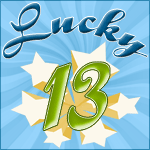
All told, I’ve given 161 grants and this month – May 2013 – just happens to be the 13th anniversary. When I was invited to speak about these grants at the NGS conference, I wanted to find a way to make it relevant to Mark’s talk, and after some noodling, it finally hit me. Vegas, 13th anniversary, pawn stores – Eureka! What about 13 orphan heirloom rescues originating in pawn stores?
Over the years, I’ve done a number of orphan heirloom rescues — that is, I’ve used my genealogical skills to track down the descendants of the original owners of particular family history treasures that have gone astray. They may have turned up at a flea market, at an antiques store, on eBay or wherever, and when they do, people sometimes submit them to me. I’ve then gone into sleuthing mode, and once I find relatives (hint: I recommend finding descendants who live somewhere other than where the item was purchased so it doesn’t end up getting re-sold), the submitter returns the photos, Bible, military medal or other treasure to the family. Occasionally, I write about these rescues.
Though I’ve never done a rescue for a piece of family history found in a pawn store, being invited to speak on this occasion made a light bulb go on in my head. Pawn stores are exactly where many such items wind up, so I decided to do a genealogical mash-up blending my grants with orphan heirloom rescues. At the banquet in Las Vegas, I announced what I’m calling my LUCKY 13 initiative and committed to giving 13 grants for the purpose of purchasing family treasures from pawn stores, doing the detective work to track down descendants of the original owners, and returning the item to that family.
Once you’ve made a rescue, apply for a Seton Shields Genealogical Grant. Over time, I will select a minimum of 13 such applications and cover the costs. It goes without saying that your odds of a successful rescue will improve considerably if you select an item with some form of identifying information, but if you happen to get stuck in your research efforts, consider submitting for my help with that aspect.
The way I see it, this is a win-win-win. Pawn stores will get sales from what is likely a fresh batch of customers. Genealogists will get to go on a mini-shopping spree and apply their research talents for this worthwhile purpose. And at least 13 lucky strangers out there will get a piece of their past back out of the blue.
Those at the banquet that evening were the first to hear about LUCKY 13, but now, I’m asking for your help to spread the word. Tell your genealogical buddies about this, include it in your society’s newsletter (might make a fun group project!), share it on Facebook, Twitter, Pinterest, Google+ or wherever you hang out online. Do whatever is easiest for you and let’s get these LUCKY 13 rescues under way as soon as possible!
P.S. Feel free to borrow the LUCKY 13 image above!

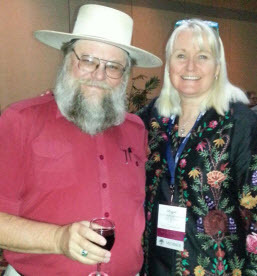
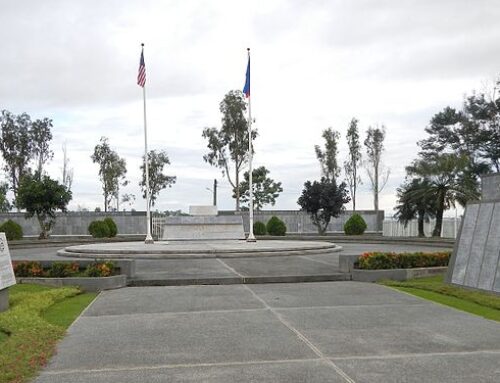
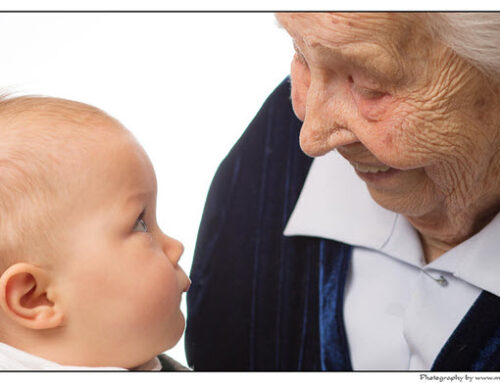
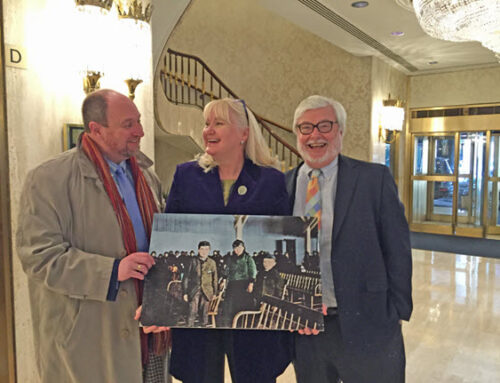
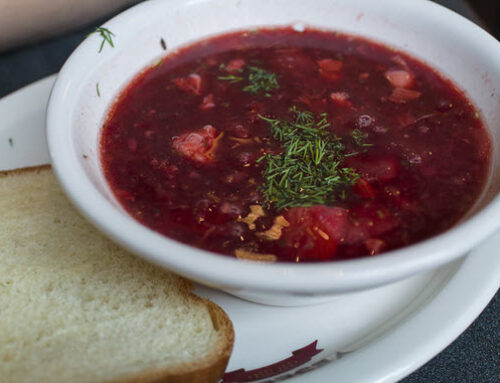
What an extraordinary story!
I had no idea others were scouring flea markets, pawn shops, auctions, and thrift stores the way I do. My family thinks it’s just sad that I have a garage full of “orphans” just waiting to find their way home to people who will treasure them. My husband just rolls his eyes when I tell him “I only spent a leeeeettle bit of our budget on [insert item],” but he knows how much it means to me.
Here’s a story that was done a few years ago about my little obsession. http://tngenealogy.net/Scans/Everything_Knoxvil…
Researching the finds keeps my skills honed, because they are often from somewhere outside my normal research area. I also get that “found you!” thrill more often than most local and family historians, because I’m constantly looking for fresh trees.
I’ve also happened upon a few original record books that belong in the permanent collections of Courts and similar offices, then contact the local officials so they could reclaim the items.
The biggest challenge I face is people who simply look at these items as money-makers. They won’t sell them at a reasonable price so I can afford to take them into temporary custodial care while looking for their permanent homes. When I see someone on a show like “Pawn Stars” selling grampaw’s stuff, for example, I just cringe.
I hope your efforts result in a massive unearthing of family treasures and returning of them to their proper trustees so they can be preserved for future generations.
I certainly would like more info! This is a wonderful idea, I am into genealogy for many years now. I purchase photos and try to return to the families and use many for my own research. I am related to most people in the entire western Kentucky an have been very successful. Please consider me for a grant!
Ah, I see you found where to submit, Shirley, but for those who aren’t sure where to go, here’s the link: http://www.honoringourancestors.com/grants.html
I love that others are doing this!!! It gives me hope. I have purchased old photos with family info, Bible pages, and other memorabilia from antique stores for years and then scour the internet to find their families. I also keep track of the family Bibles being sold on eBay, plug their names into the family trees on Ancestry and then contact family researchers, hoping they will purchase their family heirloom. I can’t afford to buy the Bibles–as mentioned by another commenter, sellers greatly inflate the Bible prices. I always suggest to the family researcher that they should try to negotiate with the seller.
Megan, what great work you do!!